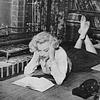Take a photo of a barcode or cover

zoolmcg 's review for:
challenging
dark
slow-paced
Plot or Character Driven:
Character
Strong character development:
Yes
Loveable characters:
No
Diverse cast of characters:
No
Flaws of characters a main focus:
Yes
This was recommended to me by a colleague after I talked to them about gothic literature, and I really did find it to be a good illustration of early meta-fiction and gothic tropes. The prose was hypnotic and confusing at times, which added to the fantasicm and insanity.
I really enjoyed the 'editor's' section the most, because while biased, it definitely paints a more vivid and imaginable portrait of the characters' lives and what transpired between them. The omniscience blends with these fictive elements and gives us the first indicator of truth being malleable. It did confuse me from time to time when characters had similar names, but as I started to understand the background of Robert and George, it became a bit easier. The 'memoirs' themselves were a little harder to follow, and more confusing with overuse of pronouns and underuse of names. Sections detailing Robert's sightings of apperitions and listening to the speeches of Gil-Martin were good, but again, very winding and made it so I spent two to three weeks reading this.
Use of dialect became popular in this era of fiction which I knew from other texts like Dracula, but it unfortunately made it even harder to read and knocked my motivation. I do usually like to be challenged by what I read, but this went a little bit too far because I had to imitate a Scottish accent in my head to penetrate meaning. What was actually interesting about this choice, though, is that it is used as a class signifier. Despite both characters in an interaction being Scottish, only the servents are ever given dialectic speech, and Robert is always given articulated and perfectly spelled dialogue as if he's English.
I can see myself trying to re-read this, maybe in reverse order where I tackle Robert's narrative before clarification from the editor. I would also still recommend this to people and gothic lovers especially because it's a good one to take a look at for religious zeal and the supernatural.
I really enjoyed the 'editor's' section the most, because while biased, it definitely paints a more vivid and imaginable portrait of the characters' lives and what transpired between them. The omniscience blends with these fictive elements and gives us the first indicator of truth being malleable. It did confuse me from time to time when characters had similar names, but as I started to understand the background of Robert and George, it became a bit easier. The 'memoirs' themselves were a little harder to follow, and more confusing with overuse of pronouns and underuse of names. Sections detailing Robert's sightings of apperitions and listening to the speeches of Gil-Martin were good, but again, very winding and made it so I spent two to three weeks reading this.
Use of dialect became popular in this era of fiction which I knew from other texts like Dracula, but it unfortunately made it even harder to read and knocked my motivation. I do usually like to be challenged by what I read, but this went a little bit too far because I had to imitate a Scottish accent in my head to penetrate meaning. What was actually interesting about this choice, though, is that it is used as a class signifier. Despite both characters in an interaction being Scottish, only the servents are ever given dialectic speech, and Robert is always given articulated and perfectly spelled dialogue as if he's English.
I can see myself trying to re-read this, maybe in reverse order where I tackle Robert's narrative before clarification from the editor. I would also still recommend this to people and gothic lovers especially because it's a good one to take a look at for religious zeal and the supernatural.